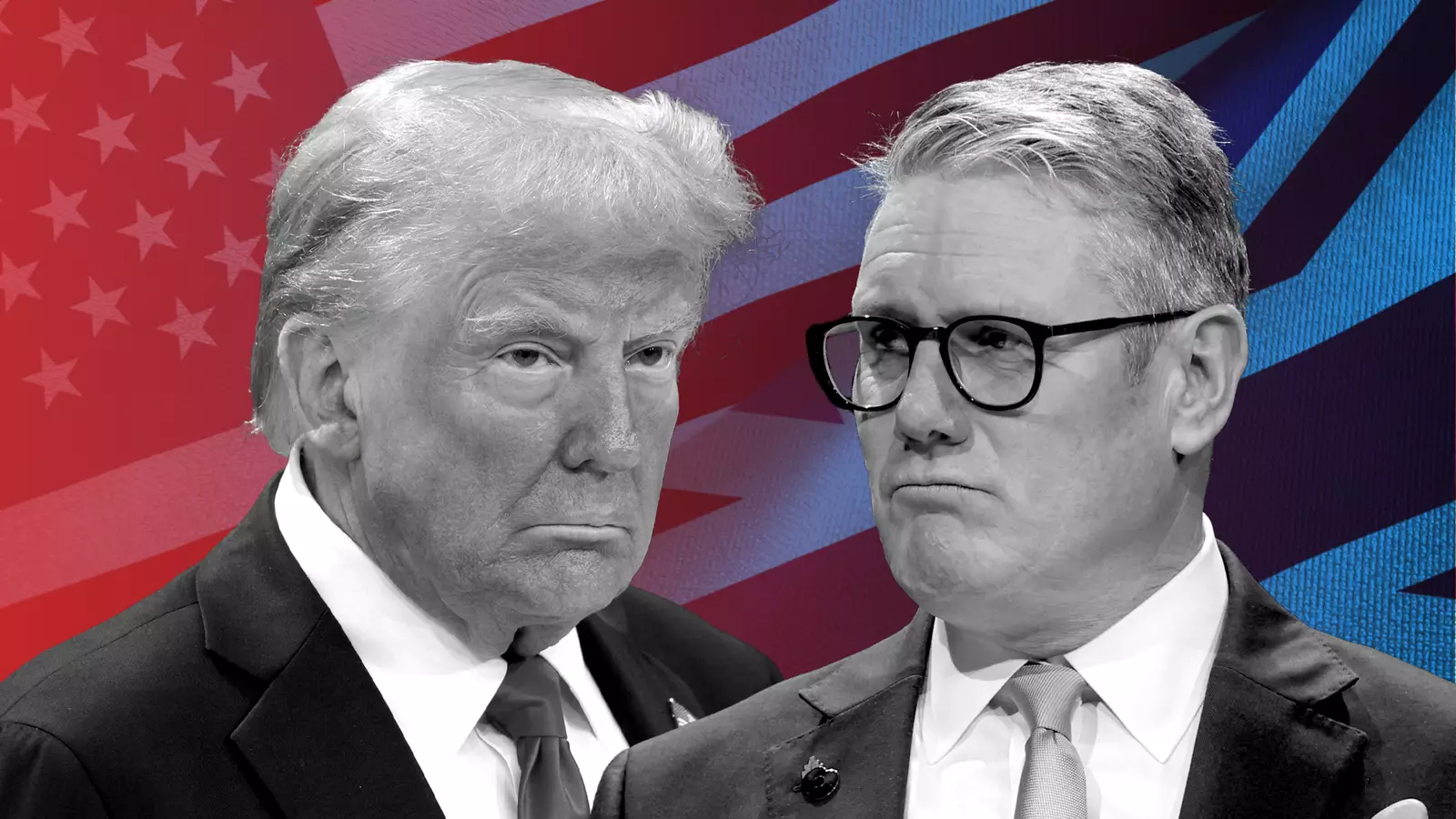As Britain observes its annual Remembrance Day, this year carries an added weight—marking the 80th anniversary of the D-Day landings. This historical event, pivotal in the quest for European liberation during World War II, serves as a backdrop for contemporary discussions on national security, military readiness, and international alliances. The solemnity of the occasion demands a reflection not just on past sacrifices of men and women who fought valiantly at Normandy but also on the precarious nature of Britain’s current defense strategy in a world fraught with conflict.
This year’s commemoration will see the Elizabeth Tower housing Big Ben adorned with projections of those who participated in the Normandy campaign. However, the sense of solemn remembrance is juxtaposed against the backdrop of politicians and military leaders who have all participated in defense cuts, raising questions about the sincerity of honoring those who fought when the very institutions meant to safeguard the nation appear to be weakened.
D-Day is celebrated as a defining moment for British pride and valor, yet its significance raises uncomfortable questions in light of current geopolitical tensions. Rishi Sunak’s controversial absence from commemorative events in France this past June reflects a broader tendency among political leaders to distance themselves from the responsibilities associated with military investment. The reliance on the United States for defense against resurgent threats in Europe—from Russian aggression to potential conflicts with China—further complicates the narrative of independence and security.
Despite the assurances from the North Atlantic Treaty Organization (NATO) that an attack on one member is an attack on all, there exists a nagging uncertainty on how much longer this reliance can be maintained without concomitant military investment from those benefitting from America’s protective umbrella.
Recent events, such as the ongoing war in Ukraine and rising tensions in the Middle East, amplify discussions around British readiness for conflict. A House of Commons report provocatively titled “Ready For War?” underscores anxieties about Britain’s capabilities to respond to threats. This sentiment is compounded by the former U.S. president Donald Trump’s “America First” doctrine, which raises concerns over whether the United States will prioritize European defense in the future, especially if the U.S. feels Europe isn’t contributing its fair share to NATO.
The revelations of dwindling military personnel and equipment readiness within the UK military lead to questions about the country’s current standing in a rapidly shifting global landscape. General Sir Roly Walker’s assertion to enhance the UK army’s “lethality” within three years signals an urgent response to emerging threats, yet it simultaneously underscores an undeniable reality: the legacy of disinvestment in defense has left Britain vulnerable.
Amidst overlapping inquiries into defense capabilities and the financial constraints imposed by the national budget, political leaders require a critical reevaluation of what true defense readiness entails. Challenging each other to commit resources—such as the perceived necessity of raising the defense budget to 2.5% or even 3% of GDP—highlights a growing awareness that existing levels of funding may not be sufficient to fortify national security in a volatile world.
The debate surrounding military spending often overlooks the harsh truth that current allocations are insufficient to build a robust response capability against potential adversaries. The dialogues occurring between party leaders must transition from mere political sparring to constructive discussions aimed at addressing pressing security needs. With the U.S. potentially decreasing its military footprint in Europe, the UK faces the reality of needing to step up to fill these gaps.
A Fragile Peace: The Importance of Unified Strategy
As Britain and European allies grapple with complex security challenges, there lies a recurring theme: the need for unified strategy and a commitment to collective defense. The prospect of an American withdrawal from its European commitments, coupled with uncertainty surrounding international alliances and political direction, necessitates a serious contemplation of what peace means in today’s context.
The specter of a political deal regarding Ukraine—such as the one that some fear could mimic the appeasement strategies of the past—evokes historical caution about the consequences of compromising security for short-term gain. The memories of past conflicts echo loudly in the present. Politicians and military leaders gathering at the Cenotaph should not only honor those who sacrificed their lives but also consider their own roles in safeguarding the future.
The annual act of remembrance serves as a potent reminder of the obligations to hear the echoes of history, and it urges contemporary leaders to reconcile their actions with the promises made to a generation that fought to uphold freedom and democracy. It is with this understanding that Britain must navigate an uncertain global landscape marked by threats and alliances, ever striving to emerge as a resilient protector of its national interests and values.


Leave a Reply